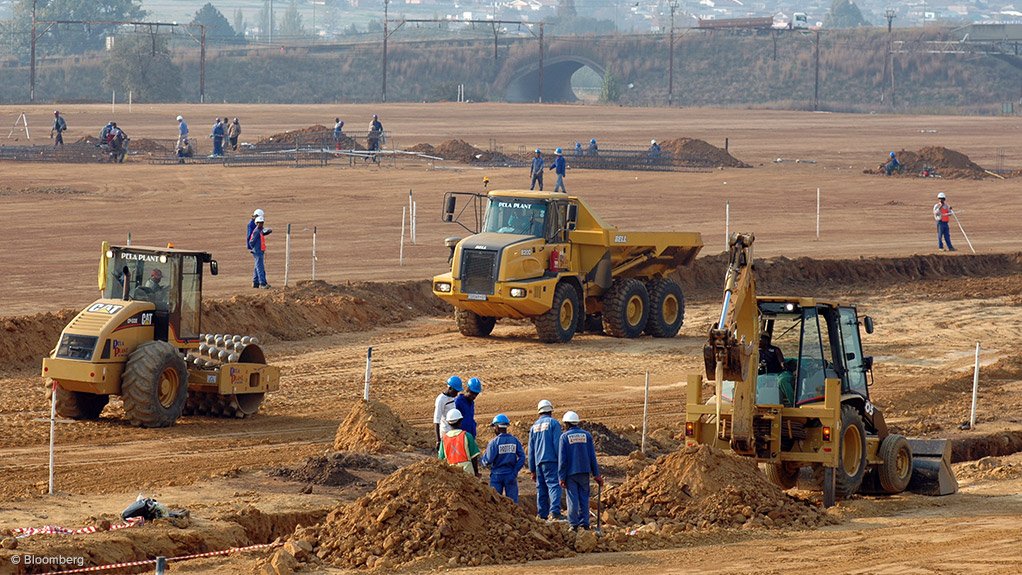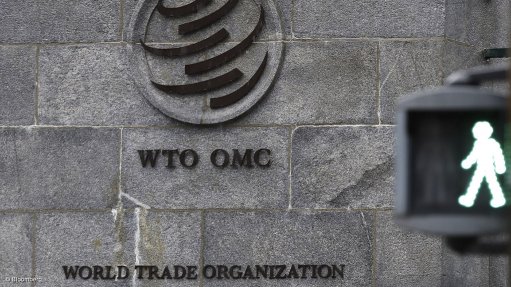New contract approach drives project success


MODERN FORM Inyatsi Construction suggests that the new contract for construction should evolve towards a more modern form that involves a team of all the stakeholders in a project
Photo by Bloomberg
Replacing the standard conditions of a construction contract with conditions that are more suited to a developing country has been key to Swaziland-based construction group Inyatsi Construction’s successful implementation of several construction projects, states Inyatsi Construction chairperson Frans Pienaar.
This success is evident in the company’s growing order book, which has increased to more than R3.5-billion for this year, with work valued at about R150-million a month.
Pienaar explains that the basic standards in the construction industry are the standard conditions of contract, as well as some standard specifications, which are enforced through an outdated model and require clients to be advised by professionals or teams of professionals.
He stresses that industry cannot apply these “rigid and historical westernised conditions of operations”, as they are designed for a First World environment where all systems mostly function ideally. In developing countries, however, projects and the related sectors can be simultaneously affected by problems from one line of the supply chain, Pienaar points out.
If the standard conditions of contract were to be applied fully, projects would be stalled or result in dispute, he says.
Significant projects should, therefore, follow a partnership approach, based on trust and integrity, Pienaar says, further suggesting that implementing a new contractual model, which the company calls a new African contract, assists in this regard.
“The new model should rather evolve towards a more modern form that involves a team of all the stakeholders in a project. It should focus on the delivery of a fit-for- purpose product and satisfy client requirements, rather than external factors, such as professional pride and industry envy,” he advocates.
He believes that the best way to enforce these standards is through self-regulation, as “delivery liability should be as close to the implementer of a project as possible”.
Application Success
Inyatsi Construction has been applying these principles of contract since 2008. The company engaged with clients to provide amicable solutions for both parties when financial or project delivery challenges arose.
Pienaar says this type of contractual approach has resulted in the successful execution of several projects during this period, which included a road construction project, in Zambia, a sewerage works project for a water utility in South Africa and two projects for water services utilities in Swaziland.
“Working with the client and not taking the contractual conflict route has resulted in significant achievements,” Pienaar says.
Inyatsi Construction limits itself to a growth of 15% a year in Africa’s construction industry, which is estimated at more than $138-billion a year.
Current projects include, but are not limited to, a significant road contract for a R900-million dual-carriageway freeway and a joint venture in the construction of a R2-billion international convention centre, both in Swaziland, as well as the R250-million Sisomo Water Project for the Swaziland Water Services Corporation that recently started.
Pienaar believes that this new contract can also assist the industry in overcoming challenges such a lack of capacity in government and professional structures tasked to implement infrastructure projects, the substandard quality of products, a drop in infrastructure development and the monopoly in the market that follows.
Public–private partnerships (PPPs) and turnkey-type projects can also be used to ensure that risk is managed by the parties best suited to do so, Pienaar suggests.
He says the new model could be replicated for PPPs to involve a team of technical design, technical advisory and management professionals, but argues that the relevant authorities in South Africa should consider mobilising knowledge, skills and capacity in the private sector.
“If a government entity has a project to be implemented, it should look to the private sector to implement the project on a government-funded turnkey basis,” he says, arguing that this could assist government entities in terms of implementation efficiency.
Comments
Press Office
Announcements
What's On
Subscribe to improve your user experience...
Option 1 (equivalent of R125 a month):
Receive a weekly copy of Creamer Media's Engineering News & Mining Weekly magazine
(print copy for those in South Africa and e-magazine for those outside of South Africa)
Receive daily email newsletters
Access to full search results
Access archive of magazine back copies
Access to Projects in Progress
Access to ONE Research Report of your choice in PDF format
Option 2 (equivalent of R375 a month):
All benefits from Option 1
PLUS
Access to Creamer Media's Research Channel Africa for ALL Research Reports, in PDF format, on various industrial and mining sectors
including Electricity; Water; Energy Transition; Hydrogen; Roads, Rail and Ports; Coal; Gold; Platinum; Battery Metals; etc.
Already a subscriber?
Forgotten your password?
Receive weekly copy of Creamer Media's Engineering News & Mining Weekly magazine (print copy for those in South Africa and e-magazine for those outside of South Africa)
➕
Recieve daily email newsletters
➕
Access to full search results
➕
Access archive of magazine back copies
➕
Access to Projects in Progress
➕
Access to ONE Research Report of your choice in PDF format
RESEARCH CHANNEL AFRICA
R4500 (equivalent of R375 a month)
SUBSCRIBEAll benefits from Option 1
➕
Access to Creamer Media's Research Channel Africa for ALL Research Reports on various industrial and mining sectors, in PDF format, including on:
Electricity
➕
Water
➕
Energy Transition
➕
Hydrogen
➕
Roads, Rail and Ports
➕
Coal
➕
Gold
➕
Platinum
➕
Battery Metals
➕
etc.
Receive all benefits from Option 1 or Option 2 delivered to numerous people at your company
➕
Multiple User names and Passwords for simultaneous log-ins
➕
Intranet integration access to all in your organisation



















